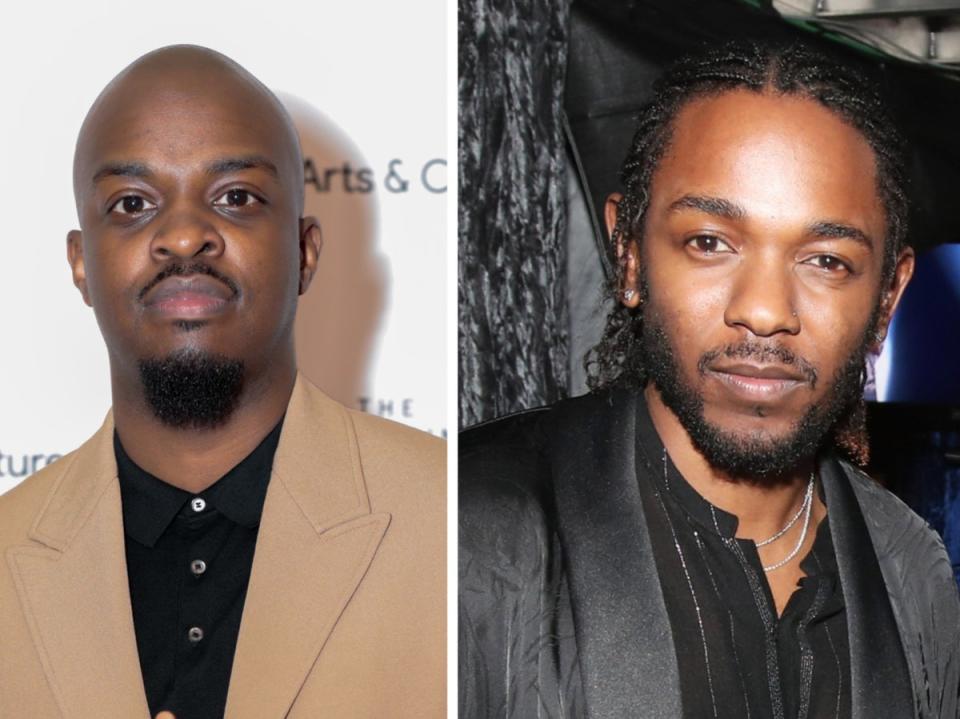George the Poet claims Kendrick Lamar is ‘cosplaying as a revolutionary’
British musician George the Poet has criticised Kendrick Lamar for “cosplaying as a revolutionary”, as he questioned how vocal the US rapper has been about “important things”.
The 33-year-old Londoner, whose real name is George Mpanga, shot to fame in 2014 for his socially conscious music and spoken-word poetry, and made headlines for turning down an MBE over what he called the “pure evil” of the British Empire.
His comments come amid an ongoing battle between international rap stars Lamar, Drake, and J Cole, which Mpanga referred to dismissively as Lamar’s “catty moment”.
Lamar has ventured further into politically conscious performances in recent years, including a politically charged statement at the 2016 Grammy Awards in which he dressed in a prison jumpsuit and chains as he paid tribute to Trayvon Martin, a 17-year-old teenager killed by police.
However, Mpanga said he was unimpressed with the trajectory the rapper has taken since.
“Kendrick Lamar is a non-revolutionary cosplaying as a revolutionary,” he told The Guardian. “[He is someone] who’s been silent about very important things at very important times.
“And now that he has a little catty moment, we’re acting like hip-hop’s back? I don’t want to be part of that.”
Since the advent of the Black Lives Matter movement, which gained increased momentum following the murder of George Floyd in 2021, musicians such as Beyoncé have become more vocal about their political views, as social media has demanded more accountability from stars.

However, Mpanga said he believes that more critical thinking and action is required in order to be truly “revolutionary”.
“We all had record deals at some point. We all had fame and ratings and commercial opportunities,” he continued. “But if you get to that point, and you notice that the upward trajectory of your career in no way reflects the condition of your community, you have decisions to make.”
The writer critiqued his own rise to fame, as he reflected on how his work has been used by “conservative interests” for their own strategies.
“[I] rose to fame with non-threatening poems that criticised my own community for the problems it faced. I presented a narrative that aligned with ruling-class interests,” he said.
“I made the system look good. All those people claiming that racism and poverty were holding them back just needed to be more like me.”
Mpanga has gone on to become a succesful podcaster and is currently completing his PhD at University College London, where he is studying how Black music can be used across the Black world.
His new book Track Record: Me, Music and the War on Blackness is published by Hodder & Stoughton on 25 April.

 Yahoo News
Yahoo News 
